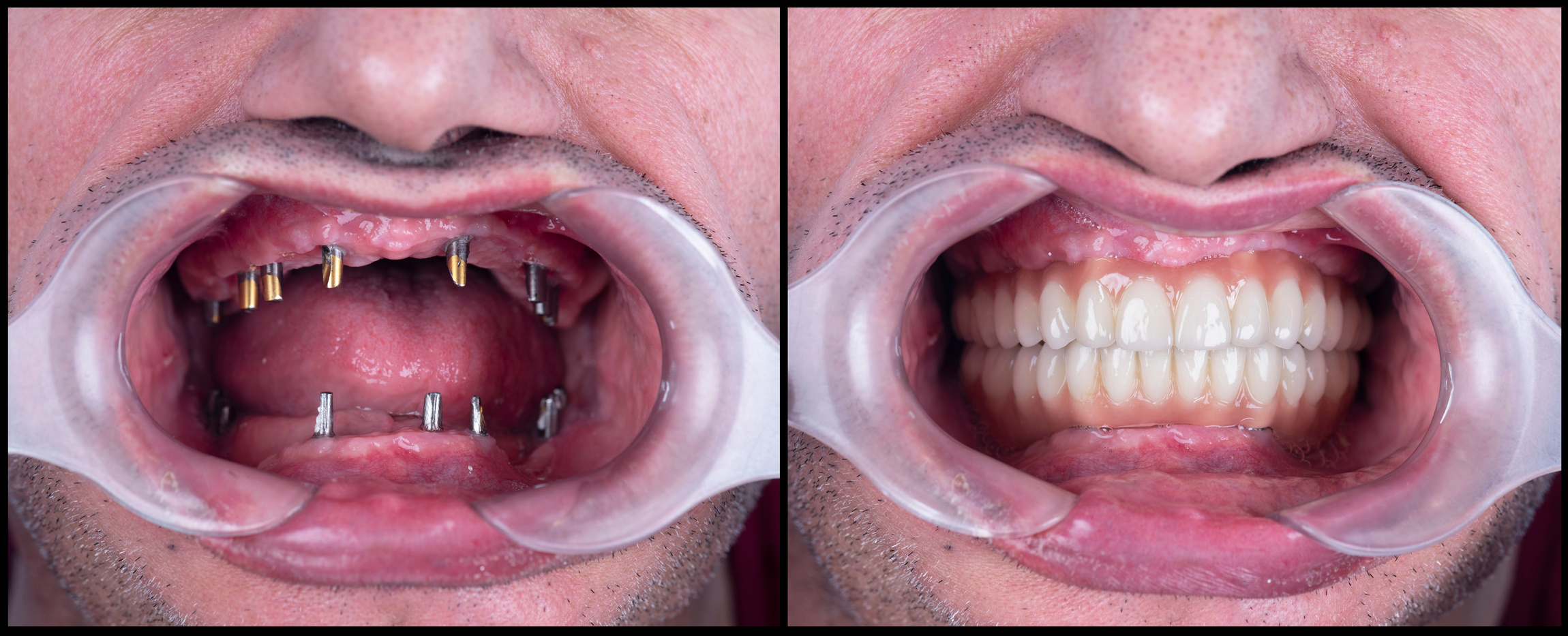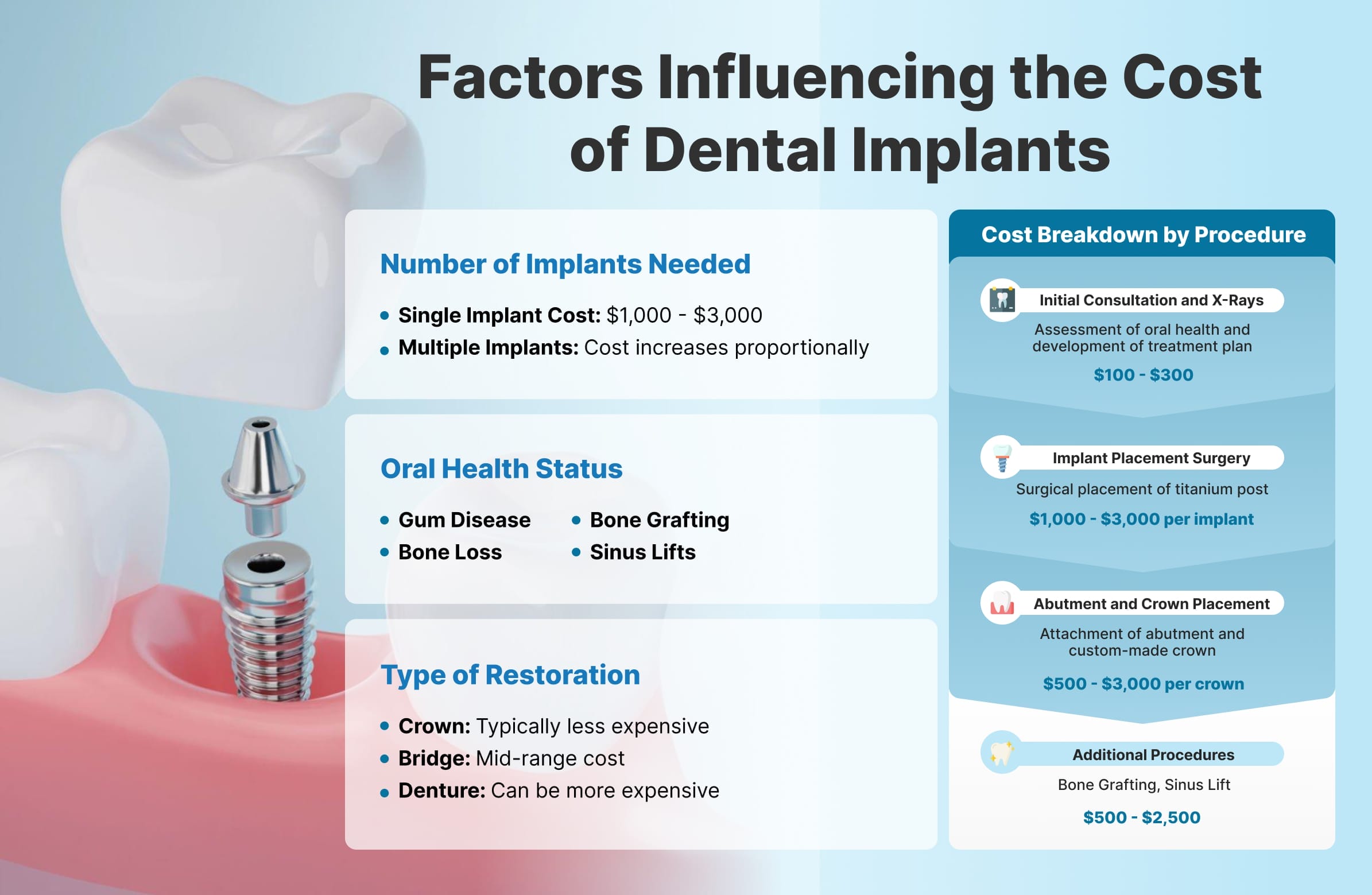Unknown Facts About Dental Sense
Table of Contents3 Simple Techniques For Dental SenseThe Single Strategy To Use For Dental SenseGetting The Dental Sense To WorkThe Greatest Guide To Dental Sense
are medical devices operatively implanted right into the jaw to restore a person's capability to chew or their look. They offer assistance for synthetic (phony) teeth, such as crowns, bridges, or dentures. When a tooth is lost due to injury or illness, a person can experience difficulties such as rapid bone loss, malfunctioning speech, or adjustments to chewing patterns that result in discomfort.Dental dental implant systems include an oral implant body and oral implant joint and may likewise include a joint addiction screw. Front tooth filling. The oral implant body is operatively put in the jawbone instead of the tooth's root. The dental implant joint is generally affixed to the dental implant body by the joint fixation screw and expands via periodontals right into the mouth to sustain the connected synthetic teeth
(https://writeablog.net/dentalsense1/expert-solutions-for-wisdom-tooth-cavities-and-same-day-dental-implants)Framework of The Oral Implant System picking dental implants, talk with your oral service provider regarding the potential benefits and threats, and whether you are a candidate for the treatment. Things to think about: Your total health is a vital consider identifying whether you are a good candidate for oral implants, the length of time it will take to heal, and exactly how long the implant may stay in place.
Cigarette smoking might impact the recovery procedure and lower the lasting success of the dental implant. The healing process for the dental implant body may take a number of months or longer, during which time you usually have a short-term joint instead of the tooth. the dental implant procedure: Thoroughly follow the dental health directions offered to you by your oral service provider.
What Does Dental Sense Do?
Implant failing can lead to the demand for an additional surgical treatment to take care of or replace the dental implant system. Restores the capability to eat Brings back aesthetic look Assists keep the jawbone from reducing because of bone loss Maintains the health and wellness of the surrounding bone and periodontals Aids maintain surrounding (nearby) teeth secure Enhances lifestyle Damage to surrounding all-natural teeth during dental implant positioning Injury to the surrounding tissues throughout surgery, such as sinus opening Injury throughout surgery (as an example, fracture of surrounding jawbone) Poor feature, such as feeling like the teeth do not attack together generally An experience that the tooth hangs or twisting in place resulting from a joint screw loosening Implant body failing (looseness of the implant body) because of systemic infection, which might be more probable in people with unrestrained diabetes because of neighborhood infection in bone and gum tissues supporting the dental implant body because of postponed recovery, which may be more probable in people that smoke Trouble cleansing the gum tissues around the dental implant, causing inadequate oral hygiene Neglected periodontal disease Post-surgical feeling numb due to nerve impingement or damage Constantly alert health treatment companies and imaging professionals that you have oral implants prior to any magnetic vibration imaging (MRI) or x-ray treatments.
FDA is not mindful of any damaging events reported for MRI or x-ray treatments with dental implants. Oral implants systems are typically made of products that adhere to global agreement criteria of the International Company for Standardization (ISO) or ASTM International. These criteria have details of what makes a risk-free material.

A dental implant is a framework that replaces a missing tooth. With screw-like gadgets, the doctor inserts a dental implant into the jawbone, and it works as a support for a synthetic tooth, called a crown. A device called an abutment connects the synthetic tooth to the dental implant. The crown is tailor-made to fit the individual's mouth and match the shade of their teeth.
The Definitive Guide to Dental Sense
Some people are not qualified for dental implant surgery. It is for dental surgeons to operate on people with: intense illnessuncontrollable metabolic diseasebone or soft cells disease or infectionIf these problems are resolved, an individual can have the surgery. In, oral specialists avoid running on people with: If individuals with any of the above undergo oral implant surgery, there is a higher danger of the dental implant failing.

Oral implant surgical treatment is a tailored procedure. Offer you time to heal. Connect the message and final crown, bridge or denture.
Next off, your specialist will carefully place the oral implant into your jaw. If your dental implant is near the front of your mouth, your dental practitioner will make a short-lived tooth for you to wear till you recover.
Get This Report on Dental Sense
Throughout the healing stage, your jawbone needs to fuse to the dental implant. This procedure can take anywhere from three to nine months.
When your implant heals, your dentist can attach the abutment (little adapter post) and your final remediation (crown, bridge or denture). This normally takes about one hour to finish and may need a 2nd minor surgical procedure. You shouldn't feel any type of discomfort throughout your oral implant treatment due to the fact that your company will certainly utilize medication to numb your periodontals.